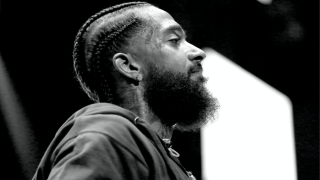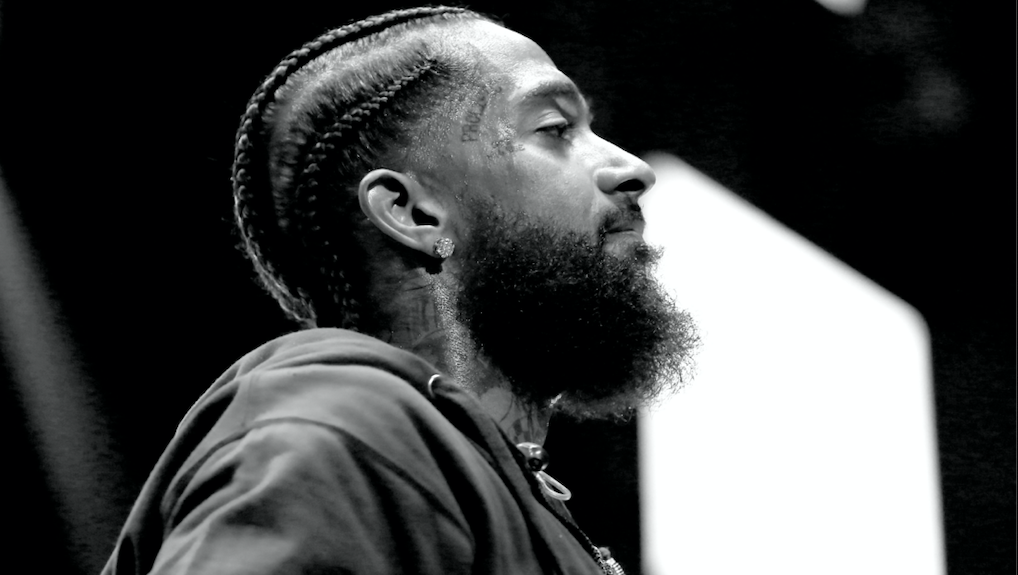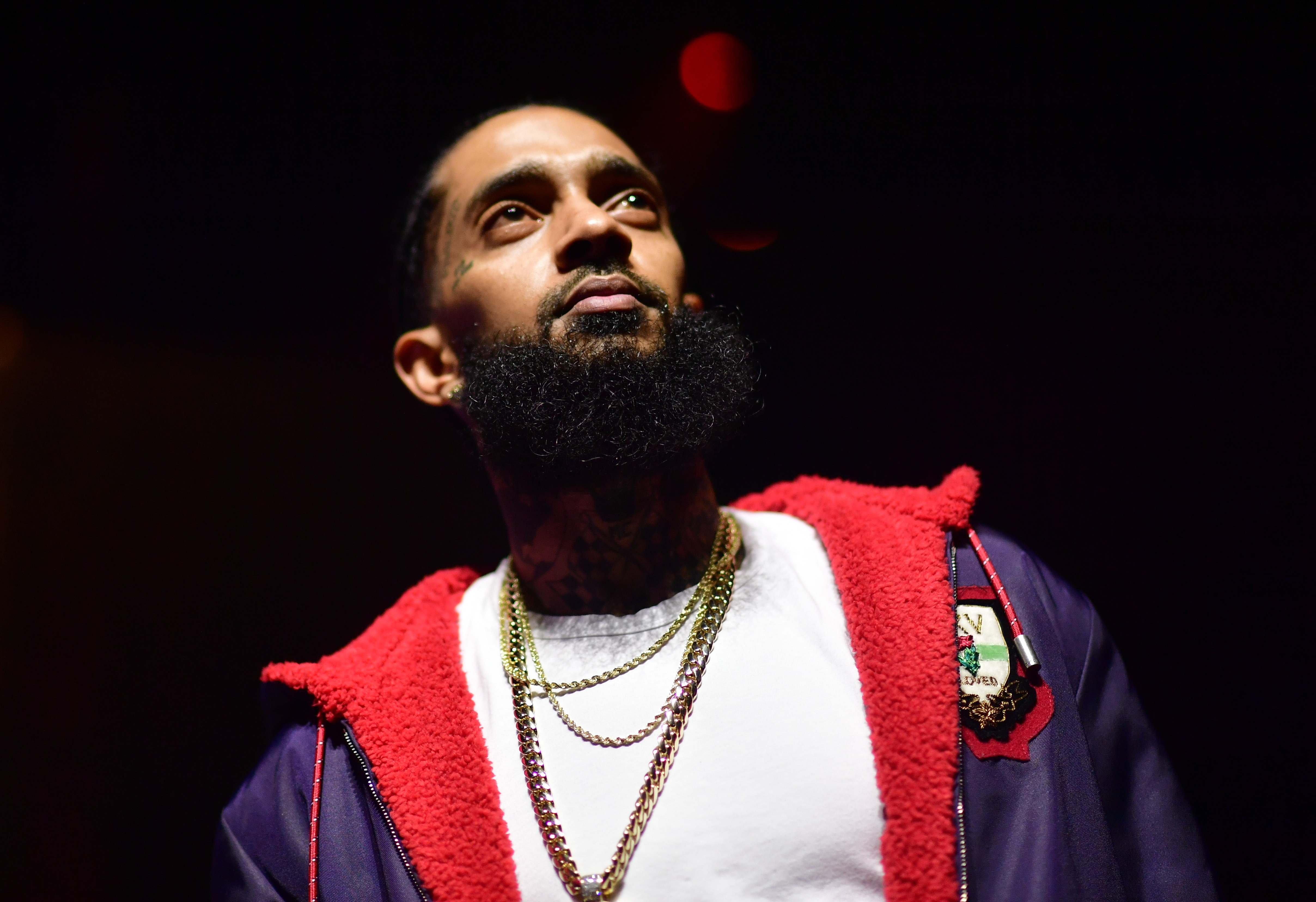
Testimony is set to continue Thursday day in the trial of Eric Ronald Holder Jr., who is charged with murder in the March 2019 shooting that left rapper Nipsey Hussle dead and injured two other men in front of the musician's clothing store in South Los Angeles.
Holder, 32, an aspiring rapper, is also charged with two counts of attempted murder and assault with a firearm and one count of possession of a firearm by a felon, along with allegations that he personally and intentionally discharged a handgun and that he personally inflicted great bodily injury.
Testimony began Wednesday, with a prosecutor telling jurors that Holder opened fire with two guns on Hussle -- whose real name was Ermias Joseph Asghedom -- outside the rapper's Hyde Park-area store.
Get Southern California news, weather forecasts and entertainment stories to your inbox. Sign up for NBC LA newsletters.
While a defense attorney acknowledged Holder killed the musician, he insisted the crime occurred in the "heat of passion.''
In his opening statement, Deputy District Attorney John McKinney told the downtown Los Angeles jury that Holder, "pulls out not one but two guns and starts shooting'' after a conversation with the rapper that included allegations of "snitching.''
The prosecutor said the rapper had told Holder there was word on the street that he had been "snitching,'' but there was "no hostility'' before Holder left the parking lot and then returned soon afterward to the strip mall.
Surveillance video shows Holder was shooting from his left hand and his right hand, according to the prosecutor.
Nipsey, who was 33, was struck by at least 10 and possibly 11 bullets in an "explosion of violence,'' McKinney said, noting that the rapper was, "shot from literally the bottom of his feet to the top of his head'' and that he would have been a paraplegic if he survived because one bullet transected his spine.
Holder allegedly told the rapper, "You're through,'' the prosecutor said.
The fallen rapper said, "You got me,'' as he was on the ground being shot, according to a grand jury transcript.
The prosecutor said Holder kicked Hussle in the head in what he called a "very personal'' attack before running from the scene, telling jurors the evidence would show that Holder had plenty of opportunity "to think about what he was going to do.''
Both men had grown up in South Los Angeles in a neighborhood claimed by a gang and were recruited into the gang at a fairly young age, McKinney told jurors.
One of Holder's attorneys, Aaron Jansen, told jurors twice during his opening statement, "This is a case about heat of passion.''
The defense lawyer conceded that his client "shot and killed'' the rapper, and said a bullet accidentally struck another man and a third man might have been grazed.
Holder was "so enraged'' about the rapper's accusation that he was a snitch that he returned nine minutes later "without thinking'' and "acted without premeditation'' in opening fire on him, Jansen said.
Holder's attorney noted that his client is charged with murder, but told jurors, "In fact, it should be voluntary manslaughter because he was acting in the heat of passion.''
The defense lawyer said he is confident the panel will acquit his client of first-degree murder, along with the two attempted murder counts.
Holder surrendered himself at a mental health clinic in Bellflower three days after the shooting, according to his lawyer.
The prosecution's first witness, Herman Douglas, testified that Holder walked up to a group in the parking lot that included the rapper and shook hands with everyone minutes before the shooting, but that he didn't sense any danger lurking whatsoever after the rapper spoke with Holder.
"I would have snatched him up out of there,'' said Douglas, an ex-con who testified that he became friends with Nipsey after meeting him in 2003.
Douglas told jurors he went inside to eat his lunch and emerged after hearing gunshots five to 10 minutes later. He said he tried to plug one of the bullet holes when he found his longtime friend mortally injured on the ground.
After Nipsey's death, thousands of people were on hand in April 2019 for a service in his honor, with singer Stevie Wonder and rapper Snoop Dogg among those paying tribute to him.
In a letter that was read during the service, former President Barack Obama wrote, "While most folks look at the Crenshaw neighborhood where he grew up and see only gangs, bullets and despair, Nipsey saw potential. He saw hope. He saw a community that, even through its flaws, taught him to always keep going.''
The rapper-entrepreneur was posthumously honored with two Grammy Awards in 2020 for best rap performance for "Racks in the Middle'' and for best rap/sung performance for "Higher.''



